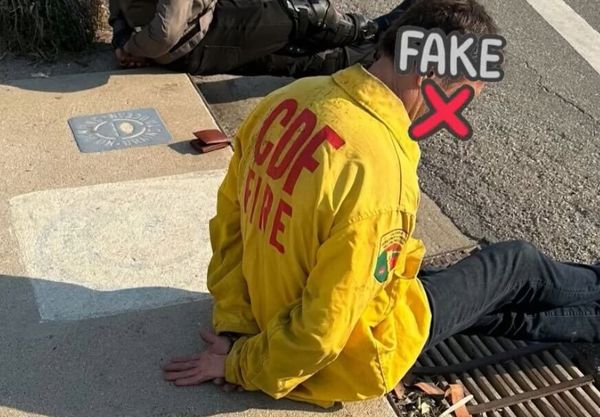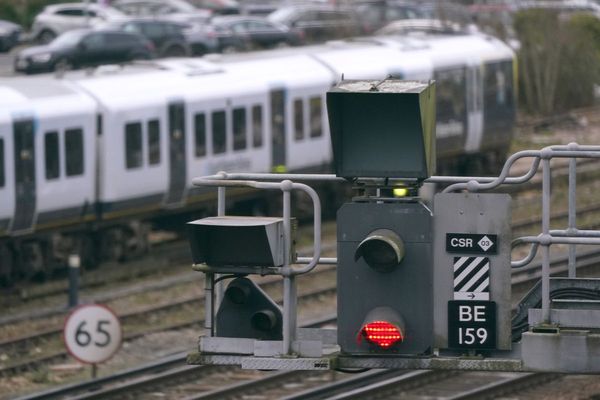
Fighting erupted last month between Morocco and separatists in the disputed Western Sahara, a territory claimed by Morocco. The sparsely populated region is bordered by Algeria to the east, Mauritania to the east and south, the Atlantic Ocean to the west, and Morocco to the north.
First, Morocco launched a military operation in a U.N.-controlled buffer zone in a village called Guerguerat. The soldiers removed a camp of 60 peaceful protesters who were blocking traffic between the Moroccan-controlled side of Western Sahara and Mauritania. Then, the pro-independence, Algeria-backed Polisario Front declared an end to the 1991 cease-fire with Morocco and promised a full resumption of fighting. Although the United Nations and the international community have called for restraint on both sides and for the maintenance of the cease-fire, on Nov. 15, the Polisario Front said it was mobilizing “thousands of volunteers” to join its fighters.
Since then, there have been reports of exchanges of fire between the two sides. Meanwhile, U.S. President Donald Trump’s announcement this month that the United States would officially recognize Moroccan sovereignty over Western Sahara in exchange for Morocco normalizing ties with Israel, upending decades of U.N.-led mediation and U.S. diplomatic efforts that aimed to resolve the regional dispute. This U.S. policy shift further increases the likelihood for a resumption of large-scale fighting and intensifies growing regional instability in North Africa.
Much is at stake in the Western Sahara conflict. Beyond the threat of fighting between Morocco and the pro-independence forces, there is the potential (albeit unlikely) for direct military clashes between Morocco and Algeria, two of the largest and most well-equipped militaries in Africa. Moreover, many other regional and global actors have vested economic and political interests in the outcome of the conflict, given Western Sahara’s strategic position on the Atlantic coastline and its natural resources. If the conflict heats up, in other words, the Western Sahara won’t be the only prize at stake.
The Western Sahara conflict is more than four decades old, resulting from a dispute over territory that arose after the Spanish colonizers withdrew in 1975. The Moroccan monarchy organized a mass gathering of nearly 350,000 Moroccans into the region, which became known as the Green March. The participants claimed that they were taking back sovereign Moroccan territory. In short order, a war broke out between neighboring Morocco and Mauritania, as well as the Algeria-backed Sahrawi independence movement, later called the Polisario Front. Fighting stopped after a U.N.-brokered cease-fire in 1991, and a plan was set to hold a referendum for self-determination for the Sahrawis, the Indigenous people of Western Sahara. However, no such referendum has ever come to pass, due to disagreements over the questions the referendum would cover (would full independence be an option?) and who would be allowed to vote (would Moroccans who moved to Western Sahara after 1975 be eligible?).
In the meantime, Morocco was able to assert its de facto control over around 75 percent of the disputed land and has invested heavily there in recent decades. The kingdom offers tax breaks and high salaries for civil servants there. While Morocco may have agreed to the 1991 U.N. cease-fire stipulation to hold a referendum, the kingdom has changed its position in practice. It has rejected any referendum that would include full independence as an option. Instead, it has proposed an autonomy plan for the region. Many of the country’s Western allies welcomed the move, even though it directly undermines the U.N. promise of self-determination for the Sahrawi people.
And so, the conflict remains unresolved, thousands of refugees remain stranded outside the region, and tensions flare up regularly. Political negotiations started back up last year, but they, too, have stalled.
Part of the reason for the deadlock is that the Western Sahara is strategically placed on the Atlantic coast and has vast natural resource wealth, including phosphate and shale gas. Since phosphates are a key, and finite, ingredient for synthetic fertilizer, they are a core resource in global food production. The region is also believed to have significant offshore oil and gas reserves, but due to the unresolved conflict, these waters are officially off-limits to exploration.
Morocco maintains control over most of the disputed land, and is aiming to turn it into a major economic and investment hub. The kingdom has plans for the construction of a $1 billon port in the Western Sahara coastal city of Dakhla. In January 2020, the Moroccan parliament passed two draft laws to expand the country’s territorial waters and to establish an exclusive economic zone that includes waters along the disputed Western Sahara, a move that angered Spain, which controls the waters surrounding the neighboring Canary Islands, and the Polisario Front, which rejects all exploitation of resources by Morocco off the Western Sahara coastline.
But Morocco has every reason to push forward. It has been pursuing a significant economics-driven foreign-policy shift toward sub-Saharan Africa, especially since it rejoined the African Union after a 33-year hiatus. It is seeking to become a member of the Economic Community of Western African States and is investing in ambitious projects such as a Morocco-Nigeria trans-African gas pipeline, a project that could help reduce European reliance on Russian gas. All of this is part of the North African kingdom’s ambitions to become an economic hub connecting Europe and Africa. The disputed Western Sahara territory is an integral piece of land in this puzzle.
The conflict concerns more than just regional rivals Algeria, Mauritania, and Morocco. Other regional and global powers are closely following the dispute. Morocco’s main trade and investment partners include European countries, the United States, Persian Gulf Arab states, and, increasingly, China. All of the Gulf states, in a rare show of unity, expressed solidarity and support for Morocco’s position. The United Arab Emirates and Bahrain have taken this a step further by establishing consulates in the disputed territory. Groups such as the UAE’s Dubai Port World are likely eyeing significant investment opportunities in the Dakhla port, as well as the fruits of greater connectivity between European and African markets through Morocco’s infrastructure projects.
China, meanwhile, views the northwest African hub as a major partner for expanding its flagship project, the Belt and Road Initiative. Morocco has embarked on major infrastructure projects, such as a high-speed train connecting financial hub Casablanca to Tangier, a city less than 10 miles from Europe and home to the Mediterranean’s and Africa’s largest port by capacity. Morocco’s King Mohammed VI has also publicly called for expanding the railways south, toward Marrakech and Agadir, and even further into the disputed Western Sahara territory to connect the cities of Laayoune and the coastal port city of Dakhla. Chinese and French companies are already competing to build the Marrakech-Agadir leg of the railway.
The Mohamed VI Tangier Tech City is set to receive $1 billion of financing from China’s Haite group and will host more than 200 Chinese businesses. Chinese companies, along with European, Japanese, and American ones, are also gravitating toward Morocco’s growing automotive manufacturing industry. Over the years, there has even been talk of building an undersea transportation tunnel between Morocco and Spain.
Russia is also seeking to expand its influence across North Africa. Moscow has engaged with both Morocco and the Polisario Front and supports a U.N. solution to the conflict. Although Russia has historically maintained closer ties with Algeria, a function of the Cold War era alliance system, and provides most of Algeria’s weapons, Russia is also increasingly interested in Morocco and the Western Sahara coastlines and energy exploration. Last month, Morocco and Russia signed a new agreement on maritime fisheries cooperation, allowing 10 Russian trawlers to fish in Moroccan waters, replacing a similar 2016 deal (and the eighth such agreement since 1992). Sources such as Western Sahara Resource Watch say that that deal primarily includes waters off the coast of Western Sahara, a violation of international law.
In 2019, meanwhile, the European Parliament approved a four-year Sustainable Fisheries Partnership Agreement between the European Union and Morocco. This agreement explicitly includes Western Sahara waters, which violates European Court of Justice rulings. France and Spain are two of Morocco’s most important economic partners, though, and are eager to find a solution to the conflict and dispel many of the diplomatic blocks lying in the way of fully exploiting Western Sahara waters and resources. Morocco is a valuable economic partner, as well as a major defense ally. It plays a significant role in regional counterterrorism efforts and in managing migration flows between Africa and Europe, a top priority for Europe.
The United States has traditionally acted as a mediator in the Western Sahara dispute, and has expressed support for Morocco’s autonomy plan on the grounds that it represents a realistic compromise “that could satisfy the aspirations of Western Sahara.” The Trump administration, under the direction of then National Security Advisor John Bolton, stepped up diplomatic efforts to resolve the conflict at the end of 2018, helping to organize the first direct talks in six years between Morocco, the Polisario Front, Algeria, and Mauritania. After two rounds of talks held in Geneva, however, the U.N. envoy resigned, allegedly over pressure from Morocco, as well as from France on the Security Council. Morocco was concerned about these talks because of the involvement of Bolton, a well-known supporter of self-determination for the Sahrawis. After the resignation, negotiations stalled again.
Trump’s 11th-hour decision to recognize Moroccan sovereignty over Western Sahara only weeks after the resumption of hostilities ignited yet another foreign-policy fire that the Biden administration will have to put out in January. No matter how you spin it, Trump’s decision was a win for Morocco—and it will be hard to walk back. The Biden administration will not want to risk Morocco-Israel normalization, which is now directly tied to U.S. recognition of Moroccan sovereignty over Western Sahara. However much the new administration promises to restore human rights to U.S. foreign policy, the self-determination of Sahrawis will likely not be considered a high priority. Morocco’s autonomy plan, for which the United States and its European allies had already expressed support even before Trump’s decision, will be presented as the only realistic way forward. Given the geopolitical and regional realities surrounding Western Sahara, Morocco will probably get its way. But it’s important to remember that the Sahrawis and their supporters won’t give in without a fight.







